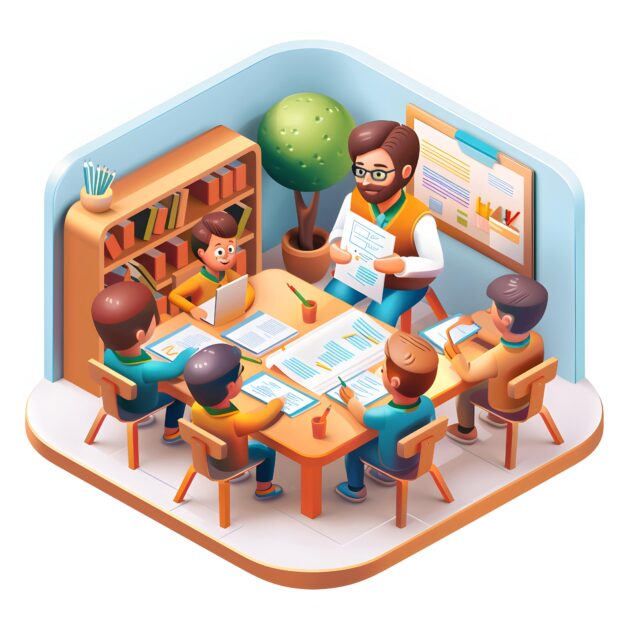Who Invented Homework? The History Behind Homework


Homework is a word that students hear almost every day. But have you ever wondered, who invented homework and why it became a part of school life? The answer lies in a journey that began centuries ago and evolved with changes in education systems across the world. While homework is often seen as a way to practice lessons at home, its origin is more than just academic. Let’s explore the beginnings, purpose, and changes in homework to understand its role in education today—a concept still deeply valued by the best schools in Bangalore.
The Origin: Who Really Invented Homework?
When we ask who invented homework, many sources mention an Italian educator named Roberto Nevilis. It is believed that in the year 1905, Nevilis introduced homework as a way to help students who needed more practice after school.
However, some historians argue that the concept of homework existed even earlier. Ancient civilizations like Rome and Greece used similar learning techniques where students practiced or memorized lessons at home. Still, Nevilis is often credited for giving homework its structured form.
The question of who invented homework remains debated, but the idea of learning beyond school hours is certainly ancient.
The Purpose of Homework: Why Was It Created?
The main purpose of homework is to reinforce learning. Teachers assign homework to:
- Help students revise what they learned in class
- Improve understanding through practice
- Develop self-discipline and time management
- Encourage independent thinking
Homework was also used to assess a student’s ability to apply knowledge without help from teachers. It helps create a connection between classroom learning and personal responsibility.
Thus, the purpose of homework has always been tied to improving student learning and academic discipline.
Early Educational Practices in History
In the past, education was very different from what we see today. In ancient China, for instance, students were expected to copy texts repeatedly to improve writing skills. In medieval Europe, memorizing religious texts was common practice.
These educational practices in history show that learning outside the classroom was not a new concept. Students had to read, write, or memorize information even without formal assignments. These practices slowly formed the foundation of modern homework systems.
Looking at educational practices in history, we realize how learning methods have influenced today’s academic habits.
The Spread of Homework in Modern Education
As time passed, homework became a regular part of schooling. By the 20th century, it was widely used in schools around the world. With the rise of public education and structured syllabi, homework became essential.
During times of war and industrial growth, schools emphasized hard work and discipline. Homework helped prepare students for real-life responsibilities. In the United States, homework was promoted as a way to make use of free time wisely.
Today, homework in modern education is seen both as a learning tool and a skill-building exercise.
Evolution of Homework Methods Over the Years
Homework methods have changed a lot. In the past, students wrote long essays or memorized facts. Today, assignments can include:
- Online quizzes and digital worksheets
- Creative projects and presentations
- Group tasks and research assignments
Technology has played a big role in the evolution of homework methods. Now, students use computers, apps, and internet resources to complete their tasks. Teachers also personalize homework to suit each student’s learning style.
With the evolution of homework methods, the focus is more on understanding than just repetition.
Importance of Homework for Students
Homework is more than just extra work. It teaches many life skills such as:
- Responsibility
- Time management
- Independent learning
By doing assignments on their own, students become more confident. Parents also get a chance to be involved in their child’s education.
The importance of homework for students lies in its ability to build habits that go beyond academics. It prepares students for challenges in higher education and life.
What Students Can Learn from Homework History
Understanding the history of homework shows how learning has always been important to human progress. It helps students see that:
- Homework has a purpose
- Learning is a continuous process
- Discipline and consistency matter
Knowing who invented homework is just the beginning. Learning from history encourages students to see education in a positive light.
Conclusion
In conclusion, discovering who invented homework helps us appreciate the role of education across centuries. From simple memorization to digital assignments, homework has evolved but its core purpose remains: helping students grow.
By understanding the purpose of homework, its history, and its evolution, students and parents can value it as a vital part of modern learning. Many of the best schools in Bangalore continue to emphasize meaningful homework as part of a balanced educational approach.
As we reflect on educational practices in history, we realize that homework is not just about school—it is a stepping stone to life-long learning. The journey of homework continues, supporting homework in modern education and adapting with time to meet the changing needs of students.
FAQs
Q1: Who is believed to have invented homework?
A: Roberto Nevilis, an Italian educator, is often credited with inventing homework in 1905, though similar practices existed earlier.
Q2: What was the original purpose of homework?
A: The purpose of homework was to help students practice lessons, improve understanding, and develop self-discipline.
Q3: How has homework evolved over the years?
A: With technology, the evolution of homework methods includes digital tasks, creative projects, and personalized learning.
Q4: Is homework important for students?
A: Yes, the importance of homework for students includes building responsibility, time management, and independent learning skills.
Q5: Was homework used in ancient education systems?
A: Yes, educational practices in history show that students practiced or memorized lessons outside class even in ancient times.



